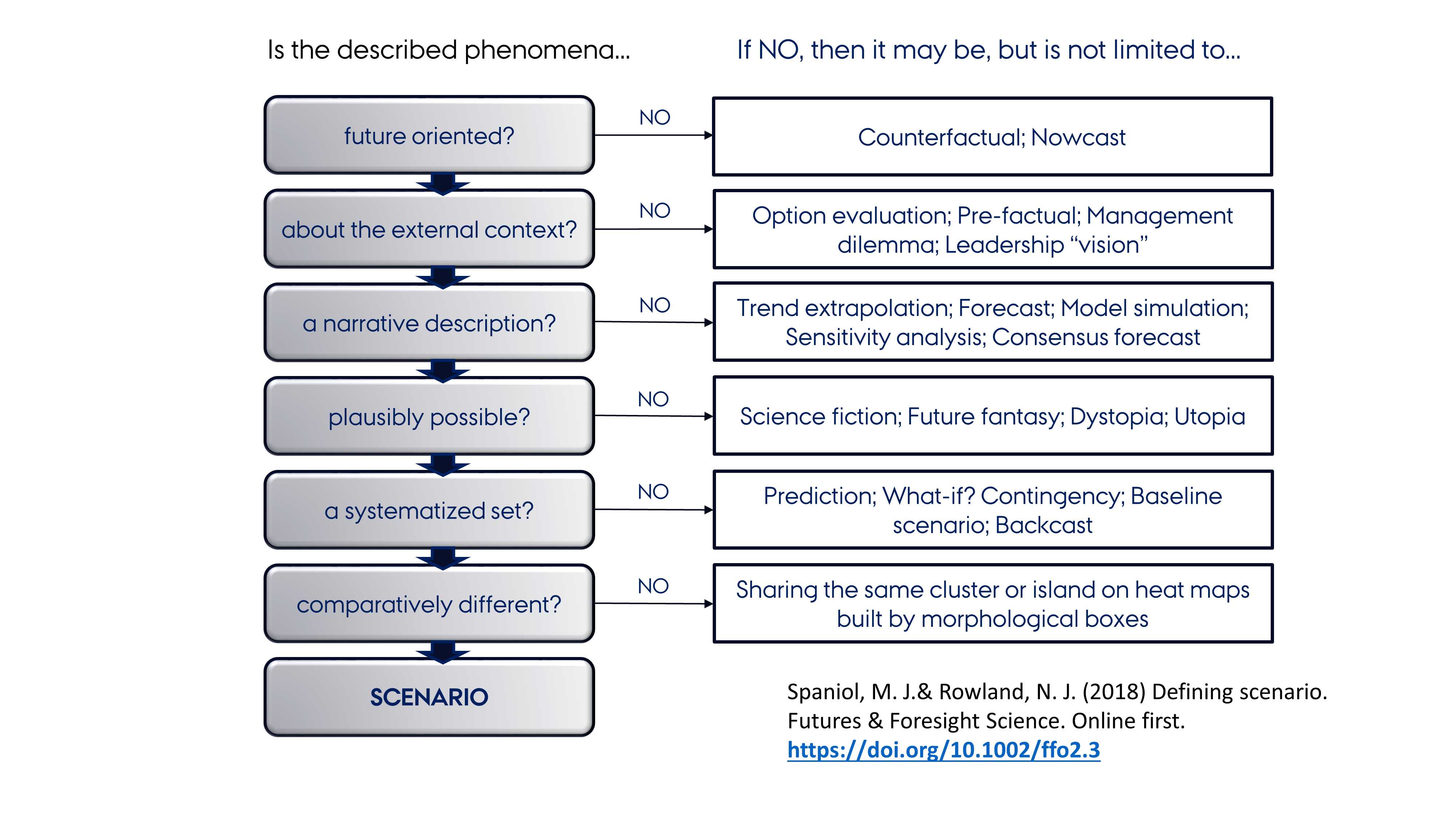|
StrengthsFinder
The Gallup Test is a common name for the psychometric instrument CliftonStrengths, formerly called StrengthsFinder, developed by the Gallup Institute, which forms the bulk of its revenue. The test was invented by Don Clifton and is known also as the Gallup Strengths Assessment or Clifton Strengths Test. It is an online personality-assessment tool that focuses on 34 themes that make up the user's personality; Gallup uses the tool as part of its consulting. The test is widely used when assessing candidates or considering employees for internal promotions. The 34 themes are divided into 4 categories: #strategic thinking: Analytical, Context, Futuristic, Ideation, Input, Intellection, Learner, Strategic; #relationship building: Adaptability, Connectedness, Developer, Empathy, Harmony, Includer, Individualization, Positivity, Relator; #influencing: Activator, Command, Communication, Competition, Maximizer, Self-assurance, Significance, Woo; #executing: Achiever The Enneagram o ... [...More Info...] [...Related Items...] OR: [Wikipedia] [Google] [Baidu] |
Gallup (company)
Gallup, Inc. is an American analytics and advisory company based in Washington, D.C. Founded by George Gallup in 1935, the company became known for its public opinion polls conducted worldwide. Starting in the 1980s, Gallup transitioned its business to focus on providing analytics and management consulting to organizations globally. In addition to its analytics, management consulting, and Gallup Poll, the company also offers educational consulting, the StrengthsFinder, CliftonStrengths assessment and associated products, and business and management books published by its Gallup Press unit. Organization Gallup is a private, employee-owned company based in Washington, D.C. Its headquarters is located at The Gallup Building. It maintains between 30 and 40 offices globally, including offices at the Gallup Riverfront Campus in Omaha, Nebraska, and has about 2,000 employees. Jon Clifton is Gallup's CEO. Gallup, Inc. has no affiliation with Gallup International Association, Gallup In ... [...More Info...] [...Related Items...] OR: [Wikipedia] [Google] [Baidu] |
Don Clifton
Donald O. Clifton (February 5, 1924 – September 14, 2003) was an American psychologist, educator, author, researcher, and entrepreneur. He founded Selection Research, Inc., which later acquired Gallup Inc., where he became chairman, and developed CliftonStrengths, Gallup's online psychological assessment. Clifton was recognized with a presidential commendation from the American Psychological Association as "the father of strengths-based psychology and the grandfather of positive psychology". Early life and education Clifton was born in Butte, Nebraska, in 1924. He attended University of Nebraska–Lincoln, earning a degree in mathematics and two in educational psychology. Later in life, Clifton received honorary doctorates in humane letters (1990) and laws (2001) from University of Nebraska and Azusa Pacific University, respectively. Clifton joined the United States Army Air Forces during World War II, where he earned the Distinguished Flying Cross. Career Clifton taug ... [...More Info...] [...Related Items...] OR: [Wikipedia] [Google] [Baidu] |
Bloomberg Businessweek
''Bloomberg Businessweek'', previously known as ''BusinessWeek'', is an American weekly business magazine published fifty times a year. Since 2009, the magazine is owned by New York City-based Bloomberg L.P. The magazine debuted in New York City in September 1929. Bloomberg Businessweek business magazines are located in the Bloomberg Tower, 731 Lexington Avenue, Manhattan in New York City and market magazines are located in the Citigroup Center, 153 East 53rd Street between Lexington and Third Avenue, Manhattan in New York City. History ''Businessweek'' was first published based in New York City in September 1929, weeks before the stock market crash of 1929. The magazine provided information and opinions on what was happening in the business world at the time. Early sections of the magazine included marketing, labor, finance, management and Washington Outlook, which made ''Businessweek'' one of the first publications to cover national political issues that directly impacted the b ... [...More Info...] [...Related Items...] OR: [Wikipedia] [Google] [Baidu] |
Personality-assessment
A personality test is a method of assessing human personality constructs. Most personality assessment instruments (despite being loosely referred to as "personality tests") are in fact introspective (i.e., subjective) self-report questionnaire (Q-data, in terms of LOTS data) measures or reports from life records (L-data) such as rating scales. Attempts to construct actual performance tests of personality have been very limited even though Raymond Cattell with his colleague Frank Warburton compiled a list of over 2000 separate objective tests that could be used in constructing objective personality tests. One exception however, was the Objective-Analytic Test Battery, a performance test designed to quantitatively measure 10 factor-analytically discerned personality trait dimensions. A major problem with both L-data and Q-data methods is that because of item transparency, rating scales and self-report questionnaires are highly susceptible to motivational and response distortion ran ... [...More Info...] [...Related Items...] OR: [Wikipedia] [Google] [Baidu] |
Personality
Personality is the characteristic sets of behaviors, cognitions, and emotional patterns that are formed from biological and environmental factors, and which change over time. While there is no generally agreed-upon definition of personality, most theories focus on motivation and psychological interactions with the environment one is surrounded by. Trait-based personality theories, such as those defined by Raymond Cattell, define personality as traits that predict an individual's behavior. On the other hand, more behaviorally-based approaches define personality through learning and habits. Nevertheless, most theories view personality as relatively stable. The study of the psychology of personality, called personality psychology, attempts to explain the tendencies that underlie differences in behavior. Psychologists have taken many different approaches to the study of personality, including biological, cognitive, learning, and trait-based theories, as well as psychodynamic, and hum ... [...More Info...] [...Related Items...] OR: [Wikipedia] [Google] [Baidu] |
The Wall Street Journal
''The Wall Street Journal'' is an American business-focused, international daily newspaper based in New York City, with international editions also available in Chinese and Japanese. The ''Journal'', along with its Asian editions, is published six days a week by Dow Jones & Company, a division of News Corp. The newspaper is published in the broadsheet format and online. The ''Journal'' has been printed continuously since its inception on July 8, 1889, by Charles Dow, Edward Jones, and Charles Bergstresser. The ''Journal'' is regarded as a newspaper of record, particularly in terms of business and financial news. The newspaper has won 38 Pulitzer Prizes, the most recent in 2019. ''The Wall Street Journal'' is one of the largest newspapers in the United States by circulation, with a circulation of about 2.834million copies (including nearly 1,829,000 digital sales) compared with ''USA Today''s 1.7million. The ''Journal'' publishes the luxury news and lifestyle magazine ' ... [...More Info...] [...Related Items...] OR: [Wikipedia] [Google] [Baidu] |
Forbes
''Forbes'' () is an American business magazine owned by Integrated Whale Media Investments and the Forbes family. Published eight times a year, it features articles on finance, industry, investing, and marketing topics. ''Forbes'' also reports on related subjects such as technology, communications, science, politics, and law. It is based in Jersey City, New Jersey. Competitors in the national business magazine category include ''Fortune'' and ''Bloomberg Businessweek''. ''Forbes'' has an international edition in Asia as well as editions produced under license in 27 countries and regions worldwide. The magazine is well known for its lists and rankings, including of the richest Americans (the Forbes 400), of the America's Wealthiest Celebrities, of the world's top companies (the Forbes Global 2000), Forbes list of the World's Most Powerful People, and The World's Billionaires. The motto of ''Forbes'' magazine is "Change the World". Its chair and editor-in-chief is Steve Fo ... [...More Info...] [...Related Items...] OR: [Wikipedia] [Google] [Baidu] |
Strategic Thinking
Strategic thinking is a mental or thinking process applied by an individual in the context of achieving a goal or set of goals. As a cognitive activity, it produces thought. When applied in an organizational strategic management process, strategic thinking involves the generation and application of unique business insights and opportunities intended to create competitive advantage for a firm or organization. It can be done individually, as well as collaboratively among key people who can positively alter an organization's future. Group strategic thinking may create more value by enabling a proactive and creative dialogue, where individuals gain other people's perspectives on critical and complex issues. This is regarded as a benefit in highly competitive and fast-changing business landscapes. Overview There is a generally accepted definition for strategic thinking, a common agreement as to its role or importance, and a standardised list of key competencies of strategic thinke ... [...More Info...] [...Related Items...] OR: [Wikipedia] [Google] [Baidu] |
Self-assurance
Confidence is a state of being clear-headed either that a hypothesis or prediction is correct or that a chosen course of action is the best or most effective. Confidence comes from a Latin word 'fidere' which means "to trust"; therefore, having self-confidence is having trust in one's self. Arrogance or hubris, in comparison, is the state of having unmerited confidence—believing something or someone is correct or capable when evidence or reasons for this belief are lacking. Overconfidence or presumptuousness is excessive belief in someone (or something) succeeding, without any regard for failure. Confidence can be a self-fulfilling prophecy as those without it may fail or not try because they lack it and those with it may succeed because they have it rather than because of an innate ability. The concept of self-confidence is commonly defined as self-assurance in one's personal judgment, ability, power, etc. One's self-confidence increases as a result of experiences of hav ... [...More Info...] [...Related Items...] OR: [Wikipedia] [Google] [Baidu] |
Achiever
The Enneagram of Personality, or simply the Enneagram (from the Greek words meaning "nine"and meaning something "written" or "drawn", is a model of the human psyche which is principally understood and taught as a typology of nine interconnected personality types. Although the origins and history of many of the ideas and theories associated with the Enneagram of Personality are a matter of dispute, contemporary Enneagram theories are principally derived from the teachings of the Bolivian psycho-spiritual teacher Oscar Ichazo from the 1950s and the Chilean psychiatrist Claudio Naranjo from the 1970s. Naranjo's theories were also influenced by some earlier teachings about personality by George Gurdjieff and the Fourth Way tradition. As a typology, the Enneagram defines nine personality types (sometimes called "enneatypes"), which are represented by the points of a geometric figure called an ''enneagram'', in which indicate connections between the types. There are some dif ... [...More Info...] [...Related Items...] OR: [Wikipedia] [Google] [Baidu] |




.jpg)